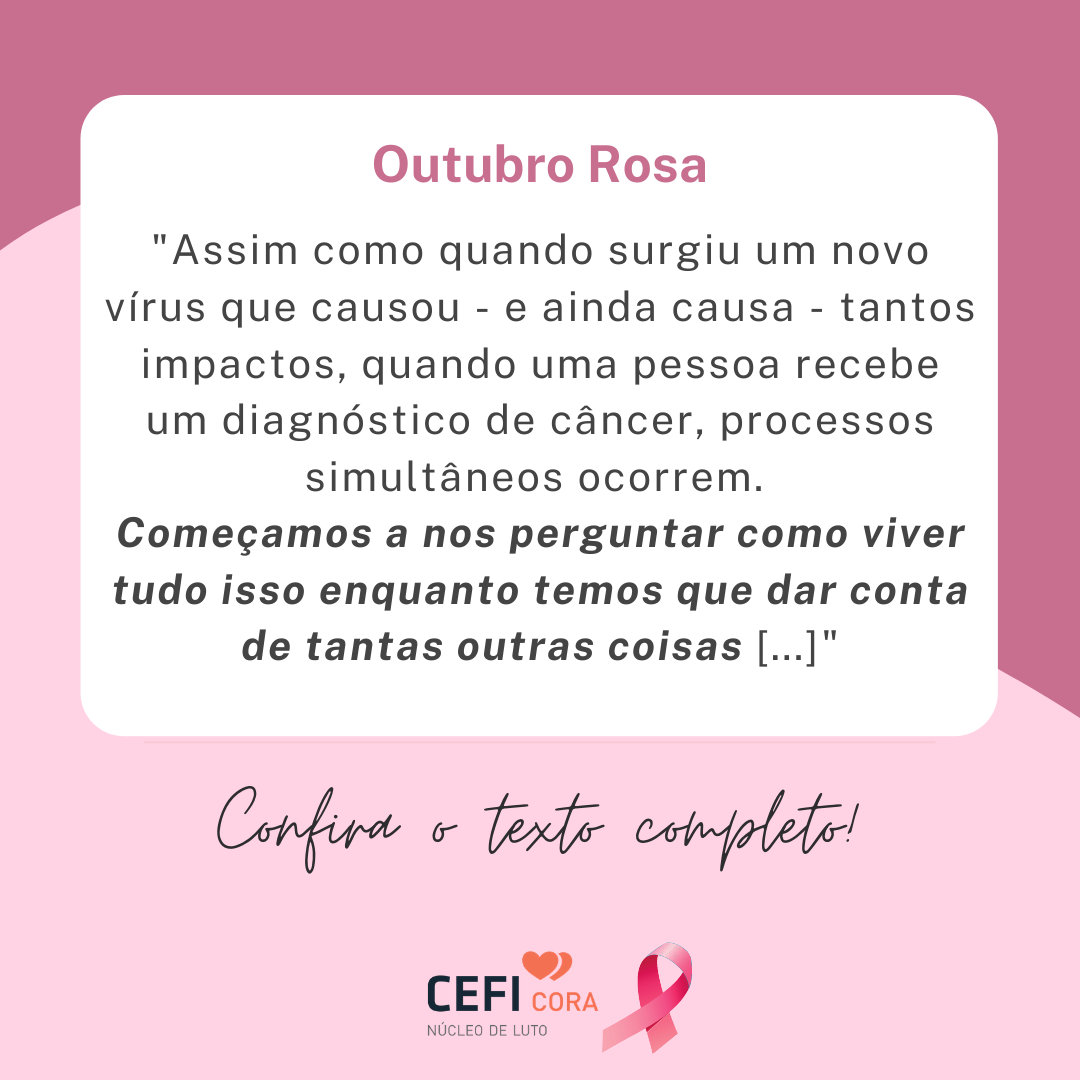ROSE OCTOBER AND BLUE NOVEMBER: SELF-CARE IN COVID-19 TIMES

OCTOBER ROSE AND BLUE NOVEMBER: SELF-CARE IN COVID-19 TIMES
The frightening news of a little-known virus with high contagion power brought us to a completely unknown situation. Without having much time to prepare, we entered a situation of social isolation, quarantined, during a pandemic. This unusual situation forced our lives to undergo numerous adaptations. The initial feeling is that our life stopped, everything was suspended and strange. This stop was actually just a hiatus, a pause to reorganize ourselves to keep doing things. It was necessary to create our new normal.
When we are diagnosed with cancer, in a certain way, the same thing happens. Our life goes into that limbo, that emotional pause where everything is confusing, while we try to assimilate and understand the dimension of the news and the changes that will come. However, this pause is short. Along with the diagnosis comes news of the start of treatment. And while we are busy trying to understand what we are actually experiencing and starting the treatment, life continues to demand that we can take care of all the other things that are part of our life and our routines.
Just as when a new virus appeared that caused - and still causes - so many impacts, when a person is diagnosed with cancer, simultaneous processes occur. We started to wonder how to live it all while we have to deal with so many other things…
In the current situation, we suffer adaptations in the face of the pandemic and the isolations for our “new normal”. We must look generously at those who are diagnosed with cancer in the midst of all this, and need a new adaptation to live in the midst of these adaptations to the "new normal" process of cancer treatment during this very unusual period.
Understand and respect the moment of initial shock at the discovery, when receiving a diagnosis for life - because even after the treatment process, it requires periodic reviews and has permanent psychological repercussions, since it changes how to face life and its adversities. This initial shock needs time to be processed, but time is just what the patient does not have. It is necessary to start the monitoring immediately in order to optimize the treatment.
In addition to the lack of time to assimilate and all the emotional crossings that are present, whoever receives the diagnosis needs to deal with a feeling of helplessness. This impotence sometimes appears as constant questioning - what happened? How did it start? When? What could be done to prevent it?
When dealing with a viral disease such as the coronavirus, we receive clear guidance on the necessary precautions to prevent illness: use of alcohol gel, hygiene care, use of a mask. But while Covid-19 is out, cancer is in, and not knowing how to avoid it or how it started increases this feeling of helplessness in the face of the disease.
Another important change to be scored during social isolation and cancer treatment is the need for support and care. In times of coronavirus, one takes care of the other avoiding social contact, respecting the guidelines and keeping physically apart. This does not change the need for affection and care. This care is only adapted.
The human being needs the other. And at a time of greater emotional vulnerability, such as cancer treatment, this support network is essential. But in view of these new safety guidelines, especially with patients in poor health, how can the network be present? The use of electronic resources, video calls, calls, delivery of products of urgent needs and quality food, are ways of being present and supporting without offering risk to those involved.
Current times require creativity to be present, supporting constant processes of adaptation. What is essential in this period is not to neglect health care. Do not stop treatments or postpone exams, pay attention to signs and symptoms or important changes.
In this sense, during the pandemic, health care must go beyond the use of alcohol gel, mask and removal. Taking care of health as a whole is essential to get out of this situation ready for the new world that awaits us.
Text written by psychologists Gabriela Gehlen CRP 07/29841, Ana Dall’Agnese CRP 07/12528 and Mariana Zanatta CRP 07/26370 from the CEFI CORA team.

